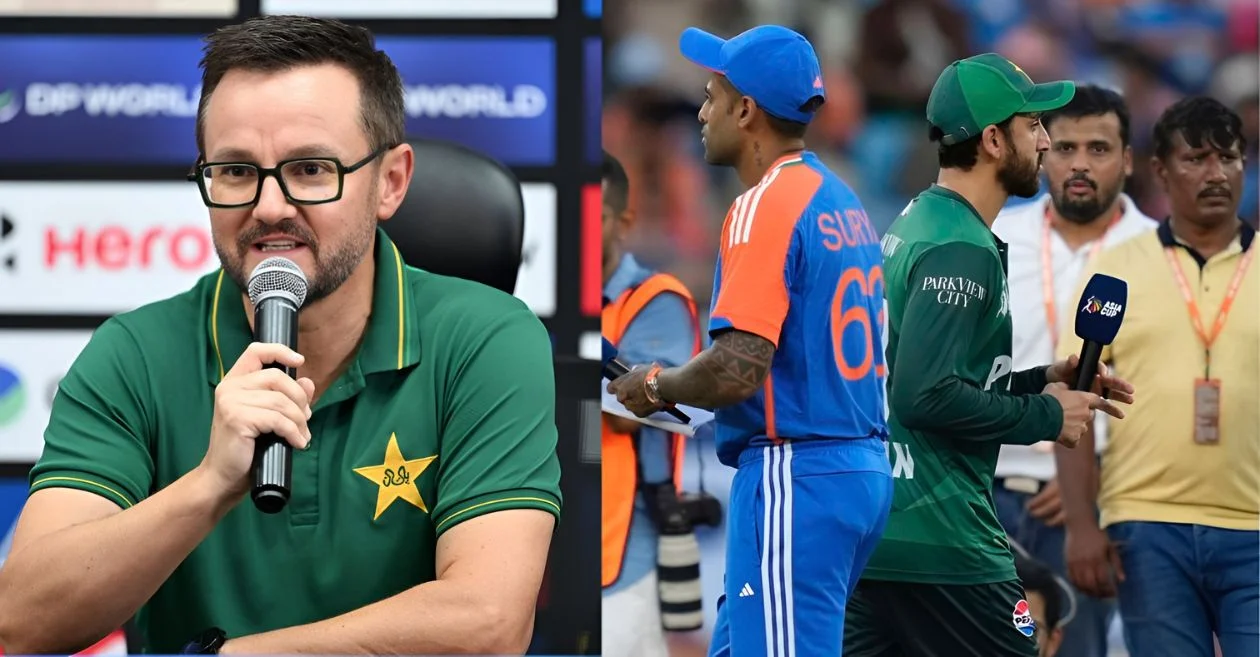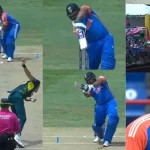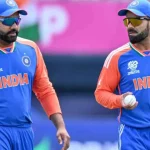Team India may have outplayed arch-rivals Pakistan in a clinical seven-wicket win during the Asia Cup 2025, but it wasn’t the emphatic performance on the pitch that stole the headlines. Instead, it was the Indian players’ refusal to engage in the customary post-match handshake that stirred up controversy and reignited political tensions between the two cricketing giants.
The incident, described by some as a breach of sportsmanship and by others as a symbolic act of national solidarity, has quickly become one of the most talked-about moments of the tournament. It was a reminder that, in the subcontinent, cricket is never just a game.
The Snub: No Handshakes After India’s Win
Following the comprehensive win in Dubai, where India chased down Pakistan’s modest total of 127 for 9 with 25 balls to spare, fans and commentators expected the usual formalities — handshakes, smiles, and perhaps some friendly exchanges. However, what unfolded was a sharp break from tradition.
As the Pakistan players, including captain Salman Ali Agha, waited near the Indian dressing room expecting the post-match ritual, the Indian squad headed straight into their changing room. No gestures of acknowledgment, no greetings — just silence and a locked door.
Pakistan head coach Mike Hesson appeared particularly upset by the incident. At the post-match press conference, he made his displeasure public:
“Obviously, we were ready to shake hands at the end of the game. We were disappointed that our opposition didn’t do that. We sort of went over there to shake hands and they were already going to the changing room. That was a disappointing way for the match to finish.”
Hesson also confirmed that Salman Ali Agha’s absence from the post-match presentation was directly linked to the emotional fallout from the snub. “It was a flow-on effect,” he remarked.
Pakistan Team Management Issues Statement
In the hours following the match, the Pakistan team management released an official statement, describing India’s decision as one that went “against the spirit of cricket.” The statement emphasized that while political matters are complex, cricket has always served as a bridge between the nations.
“Our players were prepared to honor the game and its traditions with a handshake. The Indian team’s unwillingness to reciprocate was disappointing and, in our view, uncalled for.”
Political Undertones: The Pahalgam Terror Attack & Operation Sindoor
This isn’t the first time cricket has reflected the geopolitical climate between India and Pakistan. However, what made this snub particularly significant was the timing and the motivation behind it.
India’s captain Suryakumar Yadav addressed the issue directly during his post-match interaction with the media. He stated:
“A few things in life are ahead of sportsman spirit. We’re here not just as cricketers but as representatives of our people. This win is for the victims of the Pahalgam terror attack and for the brave soldiers who carried out Operation Sindoor. That’s where our minds and hearts were tonight.”
The Pahalgam attack, which occurred in April 2025, claimed numerous lives and stirred widespread national grief in India. The successful Indian Army counter-operation, Operation Sindoor, was celebrated across the country for its precision and courage.
Given this backdrop, the Indian team’s symbolic decision not to shake hands was seen by some as a deliberate act of national solidarity, aimed at sending a clear message.
A Toss Without Eye Contact
The tension was apparent even before the first ball was bowled. Observers noted that during the toss, there was no handshake or eye contact between Suryakumar Yadav and Salman Ali Agha. The atmosphere was cold, formal, and filled with unspoken intensity.
While commentators on air initially brushed off the moment as nerves or focus, hindsight has confirmed that it was the first public display of India’s quiet protest.
Reaction from the Cricketing World
The cricket fraternity remains divided. Some former players and analysts have praised India’s stance, calling it a brave move that elevates national responsibility above sporting decorum. Others have called for restraint, emphasizing that cricket should rise above politics and remain a platform for peace and diplomacy.
Former Indian spinner Harbhajan Singh tweeted:
“Proud of the boys. Sometimes silence speaks louder than words.”
Meanwhile, ex-Pakistan captain Misbah-ul-Haq expressed disappointment:
“Rivalry is good. Aggression on the field is welcome. But let’s not forget that the world is watching. Youngsters are watching. We have a responsibility to uphold the spirit of the game.”
Fans React: Polarized Responses Online
On social media, the reactions have been explosive. Hashtags like #NoHandshake, #SolidarityWithPahalgamVictims, and #SportsmanshipDebate trended for hours following the match.
While Indian fans largely supported the team’s decision, Pakistani fans expressed sadness and disappointment, stating that cricket had once again become a victim of politics.
An X (formerly Twitter) user from India posted:
“This wasn’t about disrespecting Pakistan. This was about respecting our own. Salute to Surya and Team India.”
Conversely, a Pakistani fan wrote:
“We came to play cricket. We came to shake hands. What message does this send to the world?”
BCCI and PCB: No Official Joint Statement Yet
As of now, neither the Board of Control for Cricket in India (BCCI) nor the Pakistan Cricket Board (PCB) has issued a joint statement. However, sources close to BCCI have confirmed that the players’ actions were in sync with the directives passed down from higher authorities, and had prior approval.
The PCB is expected to escalate the matter to the Asia Cup Technical Committee, although it remains unclear what repercussions — if any — can be enforced for an incident that isn’t codified as mandatory by the ICC.
Gautam Gambhir’s Message Echoes National Sentiment
Head coach Gautam Gambhir, already known for his vocal patriotism and support for the armed forces, added his own voice to the conversation in an earlier statement:
“This match was important as we wanted to show solidarity with the victims and families of the Pahalgam attack. We want to thank the Indian Army for their successful Operation Sindoor. We will try to make our country proud and happy.”
This comment, while not directly addressing the handshake issue, further affirms the emotional weight behind the Indian team’s posture.
The Cricket, Almost Forgotten
Ironically, the cricketing dominance displayed by India — spearheaded by Kuldeep Yadav’s second consecutive Player of the Match performance and Abhishek Sharma’s blitz — has taken a back seat.
India bowled Pakistan out for 127 and chased it down in 15.5 overs with seven wickets in hand. The win was a statement in itself, but the surrounding narrative has ensured the spotlight stayed elsewhere.
Looking Ahead: What This Means for the Tournament
The incident, while symbolic, also has potential consequences. India are on course for a Super Four spot, and there’s a possibility they may face Pakistan again. If that happens, the intensity will be doubled — not just in terms of cricketing stakes, but also national emotions and expectations.
For now, the Asia Cup 2025 has its defining moment — and it didn’t come with bat or ball, but with silence and symbolism.
Please check for information on the best betting sites in India – https://selectory.org/best-betting-sites/















